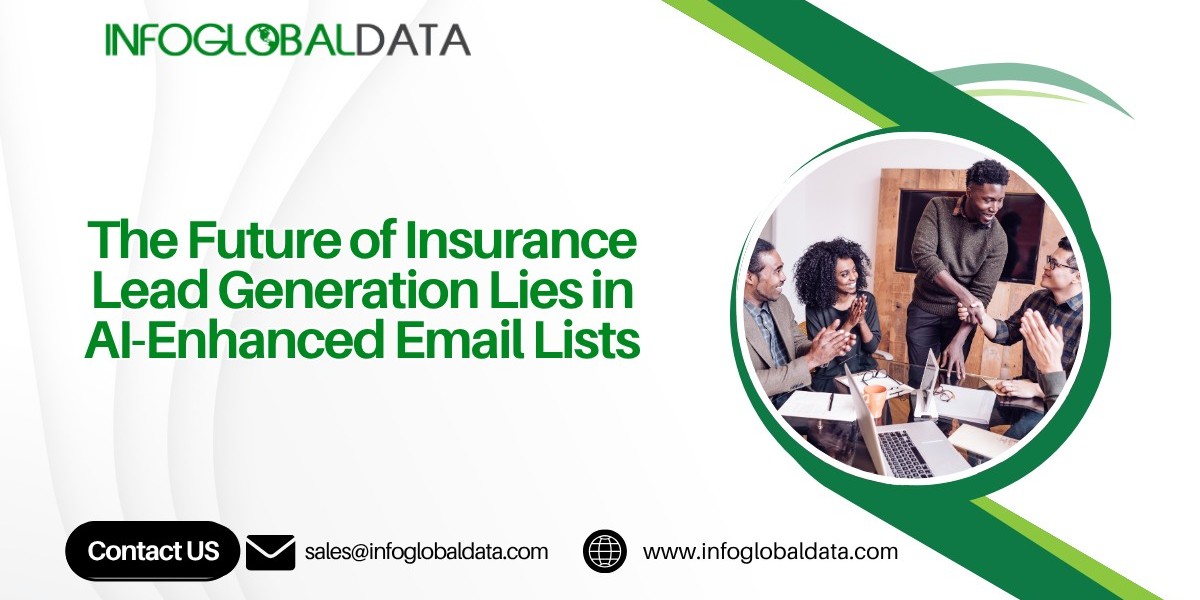Introduction to AI in Insurance
The insurance landscape is undergoing a significant shift with the adoption of artificial intelligence (AI). Companies are now leveraging AI to enhance their lead generation tactics, making their processes more efficient and targeted. The insurance industry email list is becoming an essential asset in this transformation. Traditional customer acquisition methods are being upgraded, offering a new approach where AI-driven strategies dominate. This shift is not just about collecting more leads but about generating higher-quality leads that are more likely to convert into clients. AI technology helps in analyzing customer data, predicting behavior, and personalizing outreach efforts, which significantly boosts the effectiveness of marketing campaigns. As insurers integrate AI into their systems, they can expect more streamlined and impactful lead generation processes.
The Importance of Email Lists in Insurance
Email lists have long played a vital role in the insurance industry's efforts to generate leads. They enable insurers to connect directly with potential customers, providing a personalized touch that other marketing methods often miss. Insurance companies traditionally use email lists to distribute policy information, promotional offers, and updates. However, managing an insurance industry mailing list effectively has its share of challenges. Problems such as outdated contact information, low engagement rates, and the risk of emails being flagged as spam have complicated traditional approaches. These difficulties highlight the need for more advanced, adaptive methods to maximize the potential of email outreach.
AI-Enhanced Email Lists
AI technology is set to revolutionize the way insurance companies utilize email lists for lead generation. By combining AI with an insurance industry email database, insurers can significantly improve their marketing efforts. AI algorithms can analyze extensive data to detect patterns and forecast customer behavior, enabling more targeted and efficient email campaigns. This results in a higher likelihood of engaging potential clients and enhances overall marketing efficiency. AI tools can customize email content, determine the optimal timing for sending messages, and identify the offers most likely to convert leads into clients. These capabilities make it possible for insurers to create more personalized and impactful email outreach strategies.
AI's Impact on Customer Engagement
AI-driven insights allow insurance companies to craft interactions that are more meaningful for their customers. By utilizing advanced data analysis, insurers can gain a deeper understanding of individual preferences and needs, enabling them to tailor their communications to resonate on a personal level. AI tools can help craft messages that align with the specific interests of potential clients, fostering a deeper connection and encouraging engagement.
Several case studies have highlighted the benefits of AI-enhanced email campaigns in the insurance sector. For instance, companies using AI to analyze customer data have seen notable improvements in open and click-through rates. These improved metrics often lead to increased policy sales and higher customer satisfaction. The use of AI allows insurers to identify the optimal times to send emails and the type of content that is most likely to engage recipients.
Additionally, AI can segment email lists more effectively, ensuring that messages are sent to the most relevant audience. This segmentation increases the chances of the email being opened and acted upon, as the content is more likely to meet the recipient's specific needs. AI can also adapt email content in real-time based on user interactions, making each communication more dynamic and engaging.
The integration of AI in email marketing enables insurance companies to be more proactive in their customer engagement strategies. Rather than relying on generic, one-size-fits-all messages, insurers can now send personalized content that truly resonates with each individual. This approach not only boosts engagement but also builds stronger relationships with potential clients, paving the way for long-term customer loyalty.
Future Trends in AI and Insurance
As AI technology progresses, its role in the insurance sector is poised to grow in exciting ways. Predictive analytics will become more sophisticated, allowing insurers to anticipate market trends and customer behaviors with unprecedented accuracy. This will enable companies to craft more precise and timely marketing strategies, enhancing customer acquisition and retention. Another emerging trend is the automation of routine tasks, such as claims processing and customer service inquiries. By automating these functions, insurers can free up human resources for more strategic roles and complex customer interactions, ultimately improving efficiency and service quality. AI's ability to process large volumes of data quickly and accurately will also facilitate better risk assessment and pricing models, offering more personalized insurance products to customers. Additionally, the integration of AI with other technologies like the Internet of Things (IoT) and blockchain will open new avenues for innovation. For instance, IoT devices can provide real-time data on customer behaviors and environments, allowing for more dynamic and responsive insurance products. Blockchain can enhance data security and transparency, building greater trust with customers. As these technologies evolve, their synergistic use with AI will drive the insurance industry toward more intelligent, efficient, and customer-centric models.
Conclusion
By integrating AI into email list strategies, insurance companies can revolutionize their approach to lead generation. AI's advanced data analysis and predictive capabilities allow for more personalized and efficient marketing campaigns. This personalization not only improves engagement rates but also enhances the overall customer experience. As insurers harness these technologies, they can expect a higher conversion rate of leads into clients, driving growth and profitability. AI also helps in overcoming traditional challenges like outdated contact information and low engagement rates by continuously updating and refining the email database. The future of the insurance sector will see a shift toward more intelligent, data-driven strategies that can adapt in real-time to customer needs and preferences. As a result, companies that embrace AI will be better positioned to build lasting relationships with their clients, ensuring sustained success in a competitive market.








